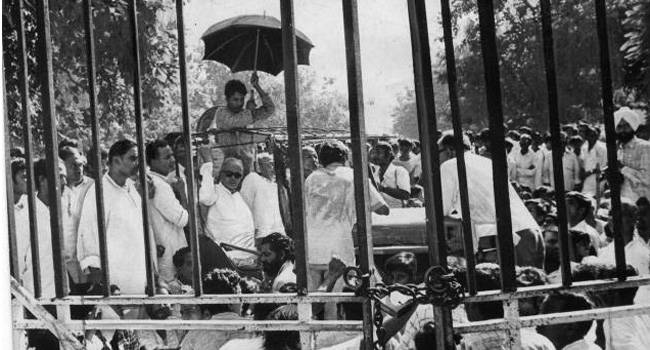The emergency in India from 1975-1977 refers to a situation in which Prime Minister Indira Gandhi declared a state of emergency under the article 352 of the constitution of India. At this time the country was experiencing a state of political unrest. This declaration of the state of emergency allowed her to rule by decree, with the ability to create law without the approval of any other person. During this period many protesters and members of the opposition party were arrested.
Most the Indian press was shut down during the emergency period but Gandhi managed to bring his weekly publication to the public any way he could.
There were many criticisms of the emergency period. The activities involved:
- secret detention of the people, without charge or notification to the family members,
- abuse and torture of the political prisoners,
- Forced sterilization of the men and woman, destruction of slum housing areas.
The administration that came into power after the emergency also tried to hold the previous administration responsible for all the crimes committed by them but most of them were not convicted of any crime, including Indira Gandhi.
The most important lesson that future political leaders must learn from the previous emergency situation is the importance of citizens in the nation. In the past people showed their commitment when they voted out Indira Gandhi and her followers in the Lok Sabha elections, resulting in the ending of the emergency.
Another important lesson is the prevention of major alterations in the constitution of the country. Indira Gandhi freely altered both during her rule at the time of emergency.
If we talk about Prime Minister Narendra Modi, he has not let Emergency remain in a forgotten corner of history.
The questionable activities in India for the past three years like the mocked promise of creating jobs, the shrinking economy, the disastrous economic consequences of demonetization that have now begun to take their social toll in the shape of farmers’ suicides, the police firing on farmers and suppression of farmers’ movements in BJP-ruled states, the rebellious mood of Dalit youth, the dispatch of the CBI to silence political adversaries, and the fear engendered in the media through selective targeting, paint a picture that is not consistent with any idea of democracy.
The Opposition now speaks of “an undeclared Emergency” hitting back at the PM in the country.
However, Finance Minister Arun Jaitley strike back at the dictators for casually using “undeclared emergency” to describe the present BJP government. He describes emergency as an assault on all the democratic institutions which created an environment of tyranny and fear in the society.
The situation in the present is no match to the declared emergency. According to Modi, it is essential to remember the incidents that have caused harm in the past to the democracy and it’s time to move ahead towards the positives of democracy.
Image Source: India Today











